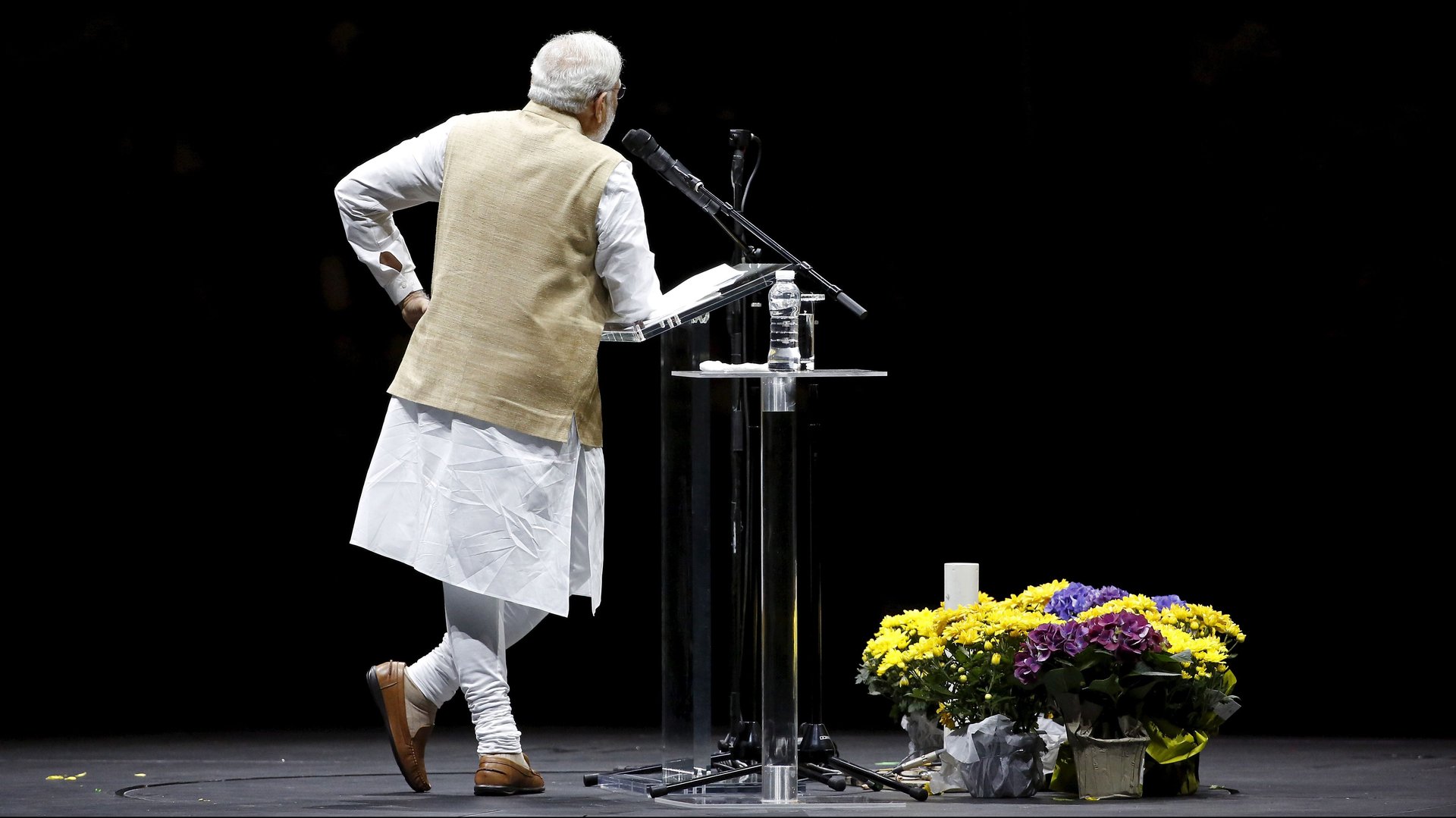The Modi government, the RBI governor and the mess that is the Indian economy
The sheer ineptitude of economic policymaking under prime minister Narendra Modi’s government has been evident from almost the beginning of its tenure. What is also now well-established is the aggressive and rigid approach of the political leadership, which generally pushes its own (often hare-brained) policies regardless of the views of experts and the wider impact on ordinary people, both of whom it tends to treat with disdain.


The sheer ineptitude of economic policymaking under prime minister Narendra Modi’s government has been evident from almost the beginning of its tenure. What is also now well-established is the aggressive and rigid approach of the political leadership, which generally pushes its own (often hare-brained) policies regardless of the views of experts and the wider impact on ordinary people, both of whom it tends to treat with disdain.
Surely, any of the economic advisors and others in significant positions of economic policymaking would have known all this for some time now.
Any self-respecting central bank governor (or indeed anyone described as a chief economic advisor) would have resigned when such a major move like the disastrous demonetisation was taken without his or her knowledge or consent. If that were not enough, it could be expected that subsequent attempts to use every possible avenue to direct public and private resources to the hands of cronies, or to push through a hastily put-together goods and services tax without even minimal preparation, or to doctor official data to suit political ends, would have created enough discomfort among the technocrats to force them to distance themselves from the government.
But apparently all that was not enough in most cases. So what has changed now? What are these new conditions, in which the governor of the Reserve Bank of India (RBI) finally does resign, his predecessor claims that this is “an act of protest,” and a former chief economic advisor starts expressing frank opinions about wrong economic policies that occurred during his tenure?
Is it because of various last straws of official pressure that could just have broken the camel’s back? Or a sudden realisation that far too many Indian institutions have already been destroyed or are on the verge of destruction? Or just a sense that political winds may be changing, whatever desperate attempts the ruling party makes to stop such change?
The immediate context for Urjit Patel’s resignation is the ongoing tussle between the central government and the RBI. These relate to various demands made by the government: to be allowed access to RBI reserves to enable the government to finance its expenditure before the general elections; to ease the restrictions on lending by “stressed” banks under the prompt corrective action framework to enable more lending, including to favoured corporate houses; to provide a single-window facility for loans to small enterprises without due diligence, and so on.
The government invoked section 7 of the RBI Act to push these policies in the face of the central bank’s opposition; the deputy governor made a stirring speech about central bank independence to counter this; a subsequent meeting of the RBI board (which contains several government representatives as well as a recent political appointee) was publicised as a kiss-and-make-up sessionin which a compromise was reached.
This is all known, but at this point in time, the public does not yet know what changed thereafter to make the governor resign. Given the recent propensity of the hired experts to tell all once they are safely out of the government, we may be told soon enough.
But perhaps these proximate causes do not tell the full story. Maybe this resignation—and the epidemic of plainspeaking that has suddenly erupted among former policymakers—reflects a more prosaic reality. No economist concerned with his/her professional reputation really wants to be associated with the massive mess that is currently the Indian economy.
Despite some recent respite on the currency market because of lower global oil prices, the Indian economy is still extremely fragile. This is evident in the slow or stagnant formal employment growth, the near collapse of small and medium enterprises that are the backbone of economic activity, rising current account deficits, and volatile capital flows.
At present there is a real shortage of liquidity for many producers and consumers, and credit flows have been drying up as banks struggle to manage their growing portfolios of bad debts. Many economic activities, including in rural India (where farmers and rural workers are both desperate and furious) have still not recovered from the blow of demonetisation and are still struggling with the effects of the poorly designed and terribly implemented GST, even as important public investment has languished.
The crony capitalists on whom so much largesse has been showered in the past few years have not delivered in terms of higher investment or expanding formal activity. And the foolish attempts to massage official national income data to score cheap political points have not worked as intended. Instead, they have deeply damaged the credibility of what was once one of the finest statistical systems in the developing world.
This is the context in which to consider Patel’s sudden resignation. With such a clueless but reckless political leadership at the helm of managing economic policy, it is now clear that anything can happen. It is also unfortunately clear that whatever does happen is not going to be good news for most of India’s people.
We welcome your comments at [email protected].
Looking for more in-depth coverage from Quartz? Become a member to read our premium content and master your understanding of the global economy.